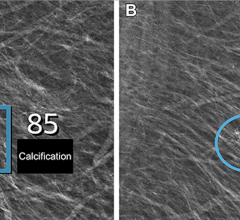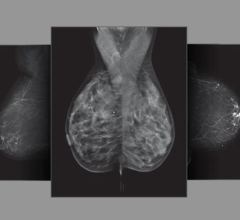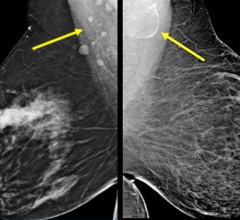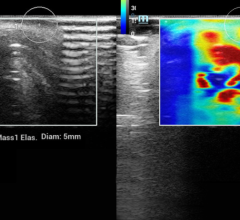
March 10, 2010 - The American College of Radiology (ACR) is backing the Safeguard Access to Preventative Services Act (H.R. 4794), which would "prohibit the use of any recommendation of the U.S. Preventive Services Task Force (or any successor task force) by private or public health insurers to deny or restrict coverage of a healthcare item or service."
The bill was introduced into the U.S. House of Representatives by Rep. Leonard Lance (R-NJ) and three original cosponsors on March 9, 2010. The legislation was issued in response to the USPSTF recommendations encouraging Medicare to deny women under the age of 50 coverage for annual breast cancer screenings using mammography. This is a reversal of the previous recommendations that women start mammography screenings at age 40.
The USPSTF is a panel funded and staffed by the HHS Agency for Healthcare Research and Quality (AHRQ). The Medicare Improvements for Patients and Providers Act of 2008 (MIPPA) gave the U.S. Department of Health and Human Services the authority to consider USPSTF recommendations in Medicare coverage determinations. At present, private insurers may also incorporate the USPSTF recommendations as a cost-savings measure.
The bill would help ensure that the recommendations from a small group of individuals cannot be used as an excuse to cut costs at the expense of patients.
The ACR said, "The case of the Task Force’s deeply flawed mammography recommendations, that run counter to the expert guidance of the American Cancer Society, American College of Radiology (ACR) and Society of Breast Imaging...[are] based on faulty recommendations." The College also said the USPSTF recommendations "may result in the unnecessary loss of thousands of lives.
"The USPSTF process needs to be fundamentally changed in order to make sure that patients get the care they need,” said James H. Thrall, M.D., FACR, chair of the ACR Board of chancellors.
He added, “Simply allowing a small group of people, who may or may not have expertise in the particular subject matter, to publish periodic recommendations in a medical journal or via a web posting, and have those recommendations serve as health coverage policy is unacceptable and potentially dangerous. The USPSTF process must be changed. This bill is a significant step in a sensible direction."
For more information: www.acr.org


 July 29, 2024
July 29, 2024 








